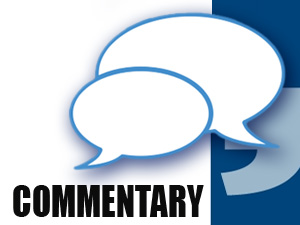Commentary of "Framing Obesity: Who is Responsible?"
Main Article Content
Abstract
Gabriella’s discussion of obesity from the standpoint of different ethical cultures in the U.S. and Europe is very interesting. I think her main point, that American focus on autonomy is an inferior system compared to a European country that considers autonomy only within the bounds of beneficence, non-maleficence, and justice, is both unique and accurate. I definitely do not disagree with her overall point that such a system is far more viable.
One thing I wish would have been taken up is the effect of poverty in the discussion of obesity. While it is true that the U.S.’s focus on autonomy and making individual choices can lead to obesity on some level, I would argue that poverty has a far more drastic impact on obesity than individual choices, though I do not have the data to prove it. Arguing about obesity only from the respect of a society focused on autonomy versus beneficence and justice misses out on socioeconomic factors that are just as, if not more, important.
The reason why I would promote poverty to such an important place in this discussion is because it brings up the question of access. The deceit in a country like the U.S. that is so focused on autonomy is that every person has a choice – we all have access to the same things. Obesity shaming could come about because society can question why the obese person doesn’t eat better or exercise regularly. However, poverty reduces the access that individuals have to certain things. In the case of obesity, I’m certain many don’t have access to healthy foods or the money to pay for gym memberships, etc. Healthy foods is one of the more important points though; unhealthy choices are much cheaper and much more sustainable for the poor. They simply don’t have the money to eat well.
The question isn’t entirely how do we teach individuals about the unhealthy choices they are making. There needs to be greater access to healthy choices for autonomy to truly be at the center of the obesity problem. Perhaps the mechanisms of non-maleficence and justice as Gabriella described them would be helpful in this instance; government regulation could led to less unhealthy food on the market and increase accessibility to healthy foods by basing their argument in the ethics of distributive justice.
Gabriella takes a unique look at the obesity problem through a bioethical principles lens. This method is not only effective, but it pares down the obesity problem conceptually so that we can attempt to understand and hopefully, combat the issue.
One minor thing I wish Gabriella would explore further is the effect of living alone on eating healthy. That is, if one lives alone and has to cook only for one, is it really more inexpensive than going out to buy a fast-food meal? (As an aside, one of the great things about cooking at home is the ability to make a large amount of food, which diminishes cost per serving. But, if you live by yourself and only eat 1-2 servings, is this really cost saving? Especially if the food you make goes bad before you can eat it all?). This might seem like a minor point, but I would be interested to hear Gabriella’s take on it.
On a different note, Gabriella rightly addresses the strong emphasis that European governments place on beneficence and justice, which (though it is hard to avoid the unfortunate phrasing), requires individuals to “pull their own weight,” as Gabriella mentions. However, she then goes on to discuss how European governments are “given power to ban the use or sale of food ingredients or products that are deemed unsafe or unhealthy.” I would argue that even though the United States places a much greater emphasis on autonomy than European governments do, we still give our federal-, state-, city-, and municipal-governments broad powers to regulate health. For example, Mayor Michael Bloomberg banned trans fats from New York City restaurants back in 2006. One could counter that – relative to many other parts of the United States – New York City is fairly progressive and socialist (with a lower-case “s”), and thus was able to more easily emphasize beneficence and justice principles. However, this past fall the Food and Drug Administration preliminarily determined that partially hydrogenated oils (a large source of trans fats) could not be used in food without prior approval. Thus, perhaps American health authorities are starting to emphasize beneficence and justice more strongly. Or, perhaps they indirectly emphasize beneficence and justice by recognizing the huge costs that accompany obesity and its implications for health.
Finally, Gabriella closes her argument very strongly when she states, “[a] health system which places individual autonomy within limits of beneficence, non-maleficence, and justice provides a more realistic way of fairly addressing the health needs of each individual.” In America, we give the FDA the power to regulate what we consume, but often this conflicts with our placement of autonomy and the individual above all. I would argue that our problem in the United States is we often want the freedom that goes along with autonomy without the responsibility. This is why agencies like the FDA are so important in promoting individual and community health.
Article Details

This work is licensed under a Creative Commons Attribution 4.0 International License.

